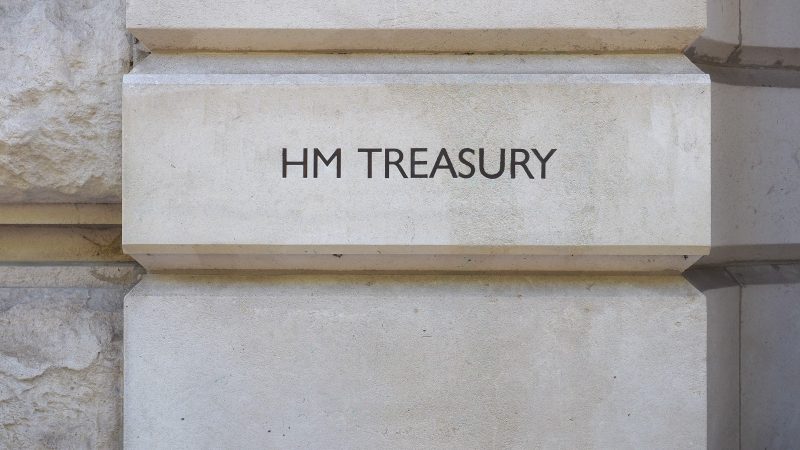
This month’s Budget will test the government’s claims to economic fairness. After years of stagnation, the UK desperately needs investment, a fairer tax system, and a credible plan to tackle the housing crisis. Reforming property taxation around a Land Value Tax (LVT) should be at the heart of that agenda.
Land value taxation isn’t a fringe idea – t’s a simple, powerful principle. The value of land is created not by the individual owner, but by the community around it. When a new railway opens, when schools improve, when jobs cluster nearby, land values rise — and those windfalls accrue to private landowners. Taxing that unearned gain is fair, efficient, and long overdue.
Our current system couldn’t be more out of step with those values. Council tax is based on property valuations frozen in 1991, making it deeply regressive. Stamp Duty Land Tax (SDLT) penalises people who move, discouraging older homeowners from downsizing and younger families from getting on the ladder. Business rates punish investment in buildings and local enterprise. Together, they entrench inequality, distort the economy and keep land under-used.
READ MORE: ‘Britain’s wealth gap is growing – the Chancellor must address it’
A Land Value Tax, charged annually on the underlying value of land rather than on buildings, would fix these distortions. It encourages landowners to use sites productively, deters speculation and hoarding, and promotes denser, greener development in our towns and cities. Because the tax falls on land, not effort, it doesn’t punish those who improve their homes or businesses.
It’s also the most growth-friendly way to raise revenue. Economists from across the spectrum — from the IPPR to the IFS, from Adam Smith to modern progressives — agree that taxing land is one of the least damaging forms of taxation. The IMF and OECD have long urged Britain to move in this direction. As Labour looks for ways to fund better housing, infrastructure and public services without squeezing workers further, LVT offers a fair, evidence-based route.
Critics will say it’s too complicated or politically risky. But modern digital mapping, Land Registry data and local valuations make it feasible in a way it never was before. A well-designed LVT could start by replacing the most regressive elements of council tax or stamp duty, with transitional protections for low-income households and pensioners. Phased-in pilots, led by Labour councils, could demonstrate how the reform supports investment and regeneration.
Subscribe here to our daily newsletter roundup of Labour news, analysis and comment– and follow us on Bluesky, WhatsApp, X and Facebook.
Politically, the argument is clear. LVT is about rewarding work and enterprise, not unearned windfalls. It’s about giving local authorities a stable, progressive revenue base to fund the services their communities need. And it’s about tackling one of the root causes of inequality in Britain — the concentration of wealth in land that the public itself makes valuable.
As Labour shapes its economic strategy ahead of the next general election, it should seize the chance to lead this debate. A fair economy needs a fair foundation, and that foundation is the land beneath our feet.
Tax reform is rarely popular, but when designed well, it can be transformative. Land value taxation is not a radical idea — it’s a rational one. This autumn, the Treasury has a chance to show that fairness, fiscal responsibility and growth can go hand in hand. The Chancellor should seize it.
Share your thoughts. Contribute on this story or tell your own by writing to our Editor. The best letters every week will be published on the site. Find out how to get your letter published.
Committing to serious exploration of Land Value Taxation would show that the party understands both the moral and the economic case for reform — and that it’s ready to build a system that works for the many, not the few.
-
- SHARE: If you have anything to share that we should be looking into or publishing about this story – or any other topic involving Labour– contact us (strictly anonymously if you wish) at [email protected].
- SUBSCRIBE: Sign up to LabourList’s morning email here for the best briefing on everything Labour, every weekday morning.
- DONATE: If you value our work, please chip in a few pounds a week and become one of our supporters, helping sustain and expand our coverage.
- PARTNER: If you or your organisation might be interested in partnering with us on sponsored events or projects, email [email protected].
- ADVERTISE: If your organisation would like to advertise or run sponsored pieces on LabourList‘s daily newsletter or website, contact our exclusive ad partners Total Politics at [email protected].




More from LabourList
‘Tackling poverty should be the legacy of Keir Starmer’s government’
‘The High Court judgment brings more uncertainty for the trans community’
‘There are good and bad businesses. Labour needs to be able to explain the difference’